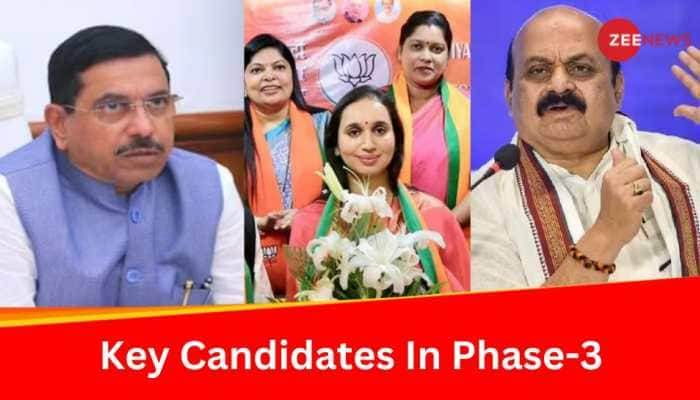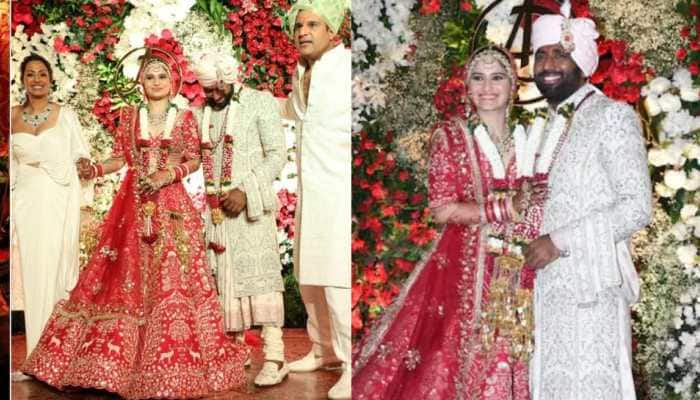Will Gangster-Politician Mukhtar Ansari's Death Impact Upcoming Elections In Eastern UP?
From his emergence as a gangster to his transformation into a powerful political figure, Mukhtar Ansari's legacy leaves a significant imprint on the region's political landscape.
Trending Photos
)
NEW DELHI: Gangster-politician Mukhtar Ansari's political journey is intricately intertwined with the socio-political fabric of Eastern Uttar Pradesh, where his influence extended far beyond his criminal background. From his emergence as a gangster to his transformation into a powerful political figure, Ansari's legacy leaves a significant imprint on the region's political landscape.
Early Life And Criminal Beginnings
Born into a politically influential family, Ansari's foray into crime began in the 1980s and 1990s when he established himself among government contract mafias in Uttar Pradesh. His criminal activities, ranging from extortion to murder, earned him notoriety in the region. Despite facing numerous criminal charges, Ansari's political ambitions remained undeterred.
Foray Into Politics: From Gangster To Legislator
Ansari's transition from gangster to politician marked a pivotal moment in his life. He capitalized on his criminal network to build a formidable political base, eventually winning elections on the tickets of various political parties. His ability to secure electoral victories, even from behind bars, underscored his enduring influence and the complexities of Uttar Pradesh's political landscape.
Dominance In Eastern UP
Ansari's political dynasty, encompassing multiple generations, wielded considerable influence in Eastern Uttar Pradesh. Constituencies like Mau and Ghazipur emerged as electoral fortresses for the Ansari family, with Mukhtar and his relatives consistently winning elections by significant margins. Their stronghold over local politics reflected a blend of power, patronage, and legacy.
Despite his criminal background, Ansari enjoyed widespread support among certain sections of the population, particularly among Muslims and Dalits. Many locals viewed him as a Robin Hood-like figure, attributing his popularity to his perceived assistance to the underprivileged. His ability to provide financial aid for medical treatment, weddings, and other necessities cemented his support base in the region.
Impact On Eastern UP: Socio-Political Dynamics
Ansari's influence extended beyond electoral politics, shaping the socio-political dynamics of Eastern Uttar Pradesh. His patronage networks, coupled with his ability to mobilize voters, played a crucial role in determining electoral outcomes and influencing governance priorities. However, his dominance also led to allegations of corruption, nepotism, and criminalization of politics.
Controversies: Legal Battles And Allegations
Throughout his political career, Ansari faced numerous legal battles and controversies. From allegations of criminal intimidation to charges of corruption, his tenure was marred by accusations of wrongdoing. However, his ability to navigate these challenges and maintain his political relevance speaks to the complexities of power dynamics in Uttar Pradesh.
Post-Ansari Era In Eastern UP
With Mukhtar Ansari's demise, Eastern Uttar Pradesh finds itself at a crossroads, grappling with the aftermath of his political legacy. The void left by his absence raises questions about the future trajectory of the region's politics and the emergence of new power brokers. As parties vie for control in the upcoming elections, the impact of Ansari's legacy continues to reverberate through the corridors of power in Eastern Uttar Pradesh.
Mukhtar Ansari's political journey, characterized by a blend of criminality and electoral success, remains a subject of fascination and debate in Uttar Pradesh. His impact on Eastern Uttar Pradesh, both as a gangster and a politician, underscores the intricate interplay between power, patronage, and populism in the region's politics.







)
)
)
)
)
)
)
)
)
)
